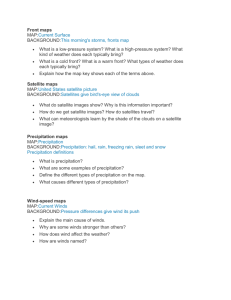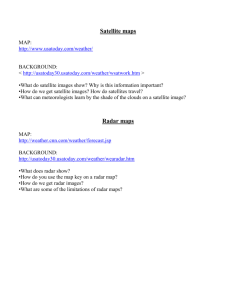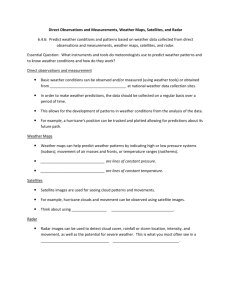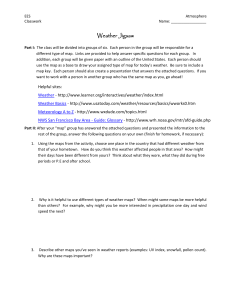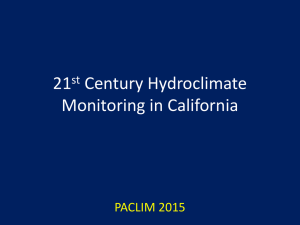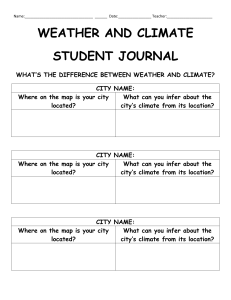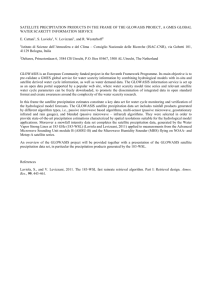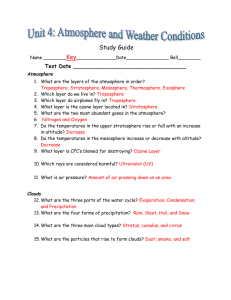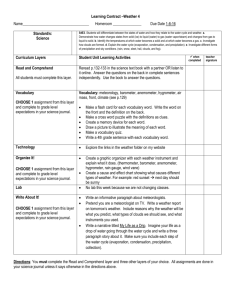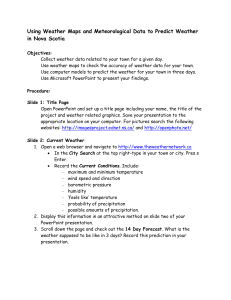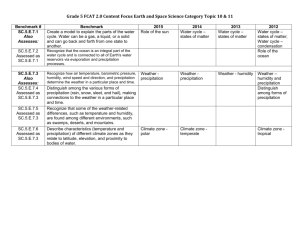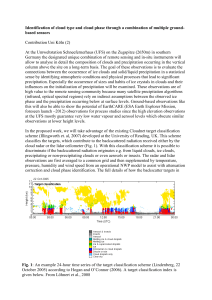Weather Map Poster - Swain County Schools
advertisement
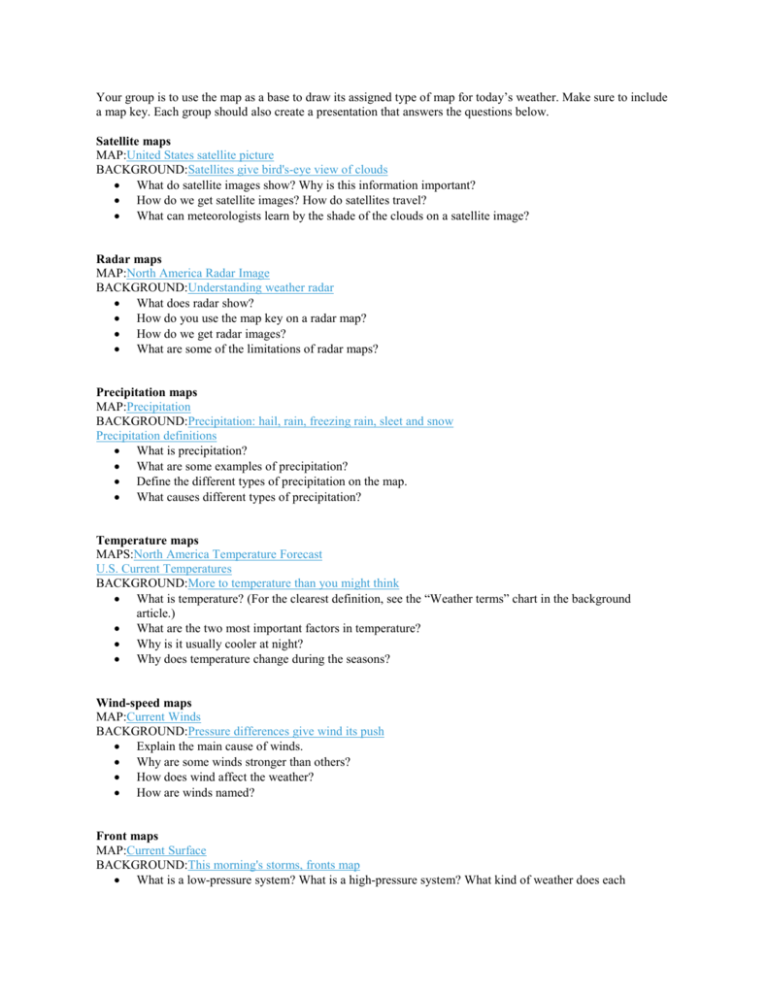
Your group is to use the map as a base to draw its assigned type of map for today’s weather. Make sure to include a map key. Each group should also create a presentation that answers the questions below. Satellite maps MAP:United States satellite picture BACKGROUND:Satellites give bird's-eye view of clouds What do satellite images show? Why is this information important? How do we get satellite images? How do satellites travel? What can meteorologists learn by the shade of the clouds on a satellite image? Radar maps MAP:North America Radar Image BACKGROUND:Understanding weather radar What does radar show? How do you use the map key on a radar map? How do we get radar images? What are some of the limitations of radar maps? Precipitation maps MAP:Precipitation BACKGROUND:Precipitation: hail, rain, freezing rain, sleet and snow Precipitation definitions What is precipitation? What are some examples of precipitation? Define the different types of precipitation on the map. What causes different types of precipitation? Temperature maps MAPS:North America Temperature Forecast U.S. Current Temperatures BACKGROUND:More to temperature than you might think What is temperature? (For the clearest definition, see the “Weather terms” chart in the background article.) What are the two most important factors in temperature? Why is it usually cooler at night? Why does temperature change during the seasons? Wind-speed maps MAP:Current Winds BACKGROUND:Pressure differences give wind its push Explain the main cause of winds. Why are some winds stronger than others? How does wind affect the weather? How are winds named? Front maps MAP:Current Surface BACKGROUND:This morning's storms, fronts map What is a low-pressure system? What is a high-pressure system? What kind of weather does each typically bring? What is a cold front? What is a warm front? What types of weather does each typically bring? Explain how the map key shows each of the terms above. Other helpful sites: Weather Weather Basics Meteorology A to Z NWS The next day, hav bulletin board. A weather report us should also answ the presentations, with another and Discussion Questions 1. Using the maps from the activity, choose one place in the country that had different weather from your hometown’s. How do you think this weather affected kids in that area? How might their days have been different from yours? Think about what they wore, what they did for recess, and what they planned for after school. 2. Why is it helpful to use different types of weather maps? When might some maps be more helpful than others? For example, why might you be more interested in precipitation one day and wind speed the next? 3. Describe other maps you’ve seen in weather reports (examples: UV index, snowfall, pollen count). Why are these maps important?
